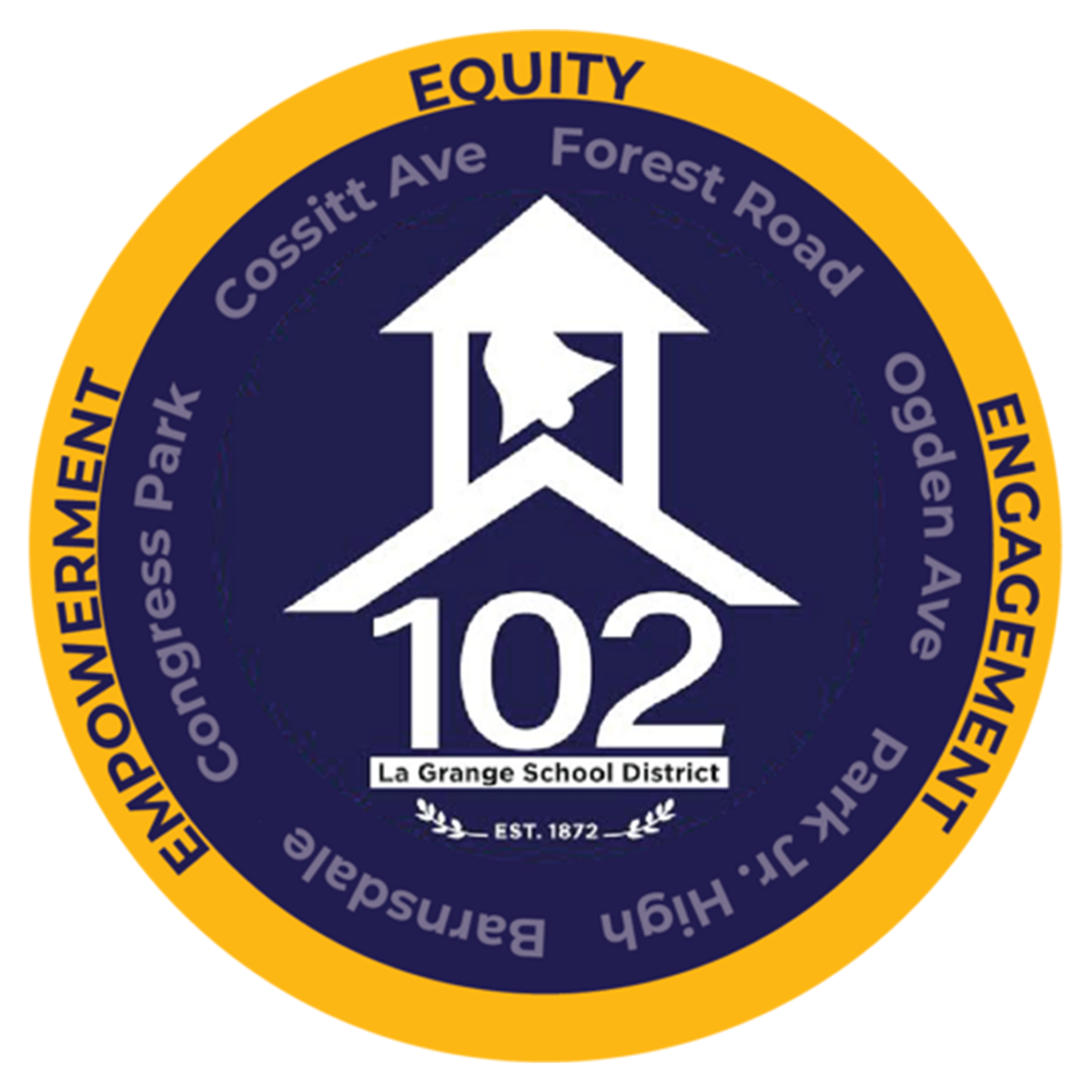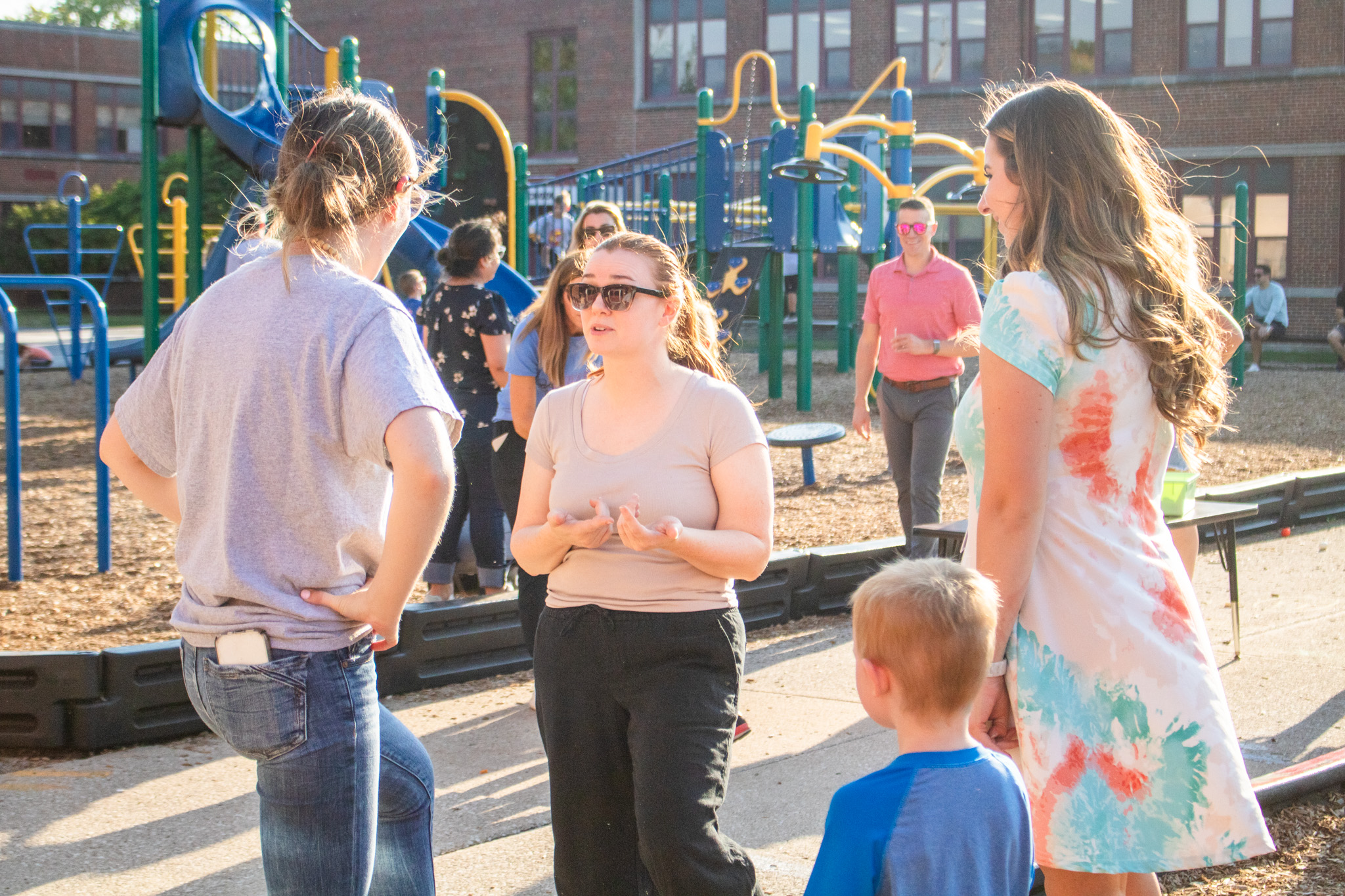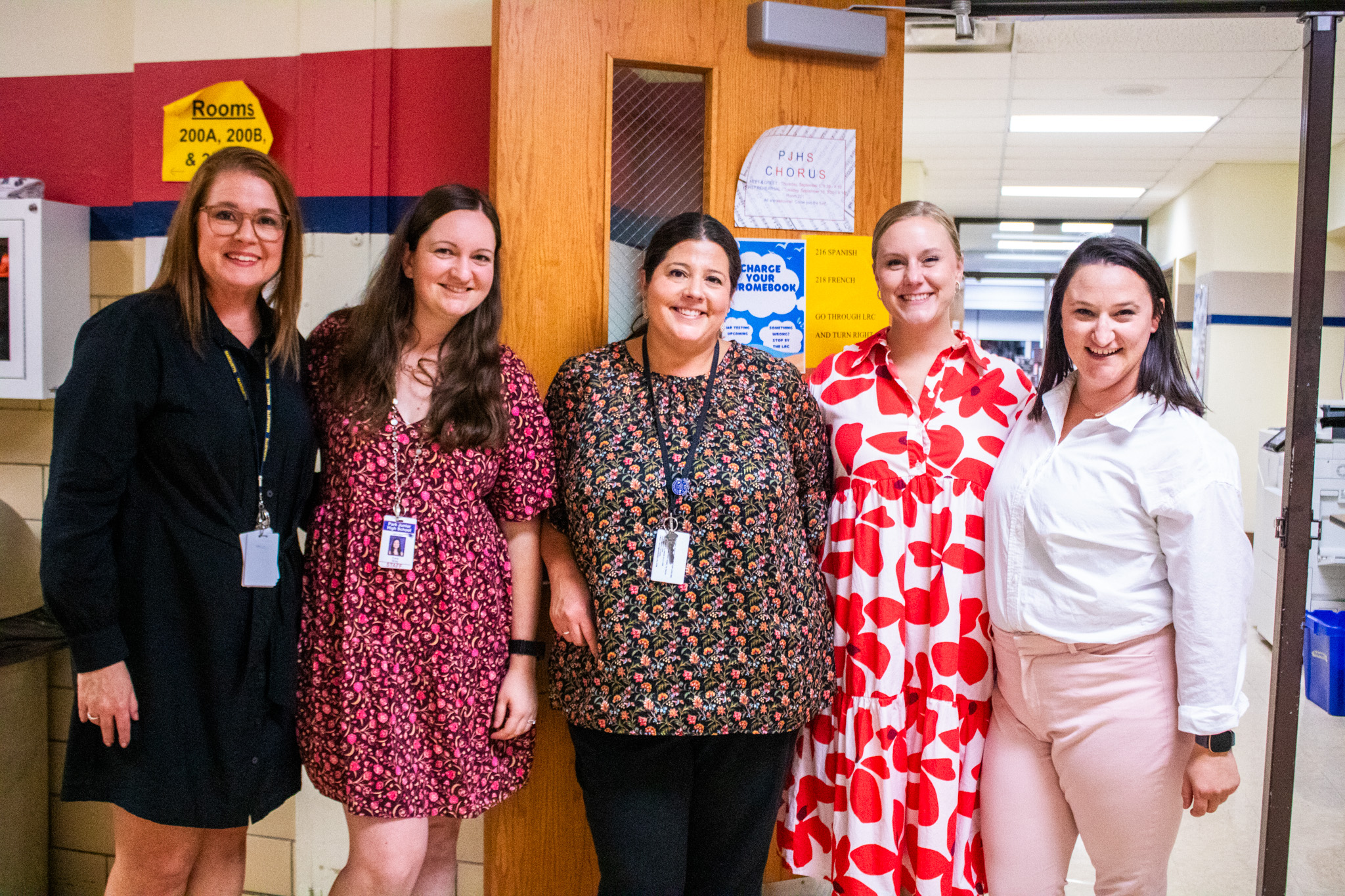


Our Department
Assistant Director of Special Education
Emily Crohn
Email: crohnem@dist102.k12.il.us
Phone: (708) 215 - 7084
Director of Equity & Student Services
Dr. Afina Lockhart

Email: lockhartaf@dist102.k12.il.us
Phone: (708) 215 - 6640
Assistant Superintendent of Student Services
Traci Milledge
Email: milledgetr@dist102.k12.il.us
Phone: (708) 215-7016
Dyslexia and Specific Learning Disability
Additional Resources
Parent Handbook
Contains information for parents interested in learning more about special education eligibility, processes, and procedures in La Grange District 102. Additional information is located throughout this website.
Does my child need special education?
Special Education Staff Roles
Resources and Helpful Links
Notices, Additional Forms, and Other Helpful Information
Important Forms and Notices
Notice of Procedural Safeguards (June 2022)
Aviso de garantías procesales (Junio de 2022)
ISBE Required Notice and Consent Forms (Multiple Languages)
Confidential Release of Information - Records Request
Procedure regarding classroom observations
Parents and guardians, or private providers, with parental or guardian permission, may observe individual students in classroom settings for the purpose of educational collaboration. The District has a guideline of one hour of observation per trimester per observer in order to minimize educational disruptions. At times, exceptions are made to this procedure, with agreement from the District. Any variations to the guideline must be granted by the Director of Special Education, Traci Milledge, at 708-215-7016 or milledgetr@dist102.k12.il.us.
If small group observations are requested, permission to observe the group must be granted by the parents or guardians of the other individual students in the group. Each observer is accompanied by a District professional of like-role or background. Parent or guardian observations are accompanied by an administrator. The guidelines and procedures around classroom observations ensure that meaningful parental participation takes place while also protecting the confidentiality of individual students.
Procedure regarding homebound/hospital tutoring
Home/hospital services are provided to a student when a physician licensed to practice medicine in all of its branches, a licensed physician assistant (PA), or a licensed Advanced Practice Registered Nurse (APRN) determines that the student will, or is anticipated to be, absent from school for a minimum of 10 days during the school year due to a medical condition. The goal of home/hospital instruction (HHI) is to afford the student experiences equivalent to those afforded to other students at the same grade level. It is designed to enable the student to return to the classroom without having fallen behind. Thus, the substance or content of the instruction, generally academic, is to enable the student to remain on pace with the other students in his or her class. Detailed information regarding eligibility is found in the memo below. If you believe that your child may be eligible for homebound tutoring, please contact your school nurse.
Procedure regarding recording meetings or remote learning sessions
La Grange District 102 promotes and encourages the free and open exchange of information between parents and staff members during meetings in order to best serve students. For this reason, the use of audio, visual and other recording devices at IEP, Section 504 and other student meetings, as well as meetings between school personnel and parents/guardians, shall be prohibited. The prohibition on the recording of meetings also applies to remote meetings that may take place by video or phone through formats such as Zoom and/or Google Hangouts. During alternative learning days, where remote learning opportunities are provided, the recording of instructional, counseling, or therapy sessions provided by teachers and/or related service personnel is strictly prohibited.
Exceptions regarding the recording of meetings may be made on a case-by-case basis when a parent/guardian, student or staff member is a qualified person with a disability and/or has a language barrier that prevents his/her access to or meaningful participation at a meeting. The decision regarding whether recording the meeting is a reasonable accommodation will be made in the sole discretion of a School District administrator.
Presentations & Handouts
Organizations and Cooperatives
Effective Dispute Resolution/Complaints
EARLY RESOLUTION
Early resolution is an informal means for districts and parents to resolve issues at the local level. It is not uncommon for disagreements to occur between parents and school districts regarding a child's special education services. Those disagreements can often be resolved at the local level with open communication between the parties. The process of resolving disagreements at the local level can be a quick alternative to using a state-sponsored dispute resolution system, and can have the added benefit of improving communication between both parties in the future.
If an individual believes that a school district has not complied with the law or that a child's educational rights has been violated, the individual should try to resolve the issues with the local school district, through the following steps:
Communicating directly with the school staff, principal, superintendent, or director of the special education cooperative.
Beyond each school's principal, La Grange District 102 has two district-level administrators who serve as complaint managers: Traci Milledge, Assistant Superintendent of Student Services, milledgetr@dist102.k12.il.us , and David Holt, Director of Human Resources and Public Relations holtda@dist102.k12.il.us.
Requesting an Individualized Education Program (IEP) meeting to discuss the issues with the IEP team.
Utilizing the systems found here on the ISBE web page, including filing a due process or making a formal complaint.


